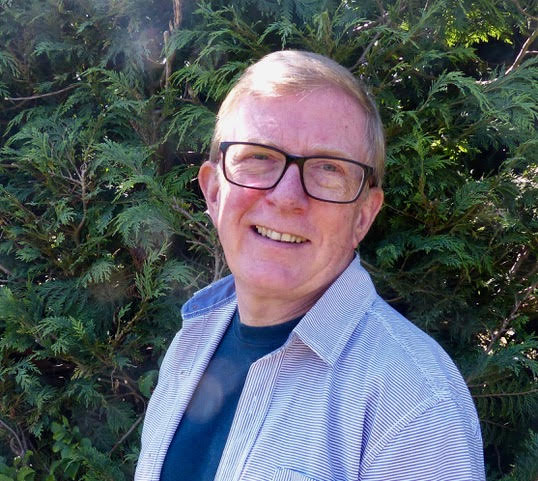 Pete English works as a school counsellor and as the project lead for ListeningPeople, from AtaLoss.org. ListeningPeople offers training and resources to give teachers, youth workers, counsellors and anyone who works with young people the tools to safely and confidently engage with them around the difficult topic of loss.
Pete English works as a school counsellor and as the project lead for ListeningPeople, from AtaLoss.org. ListeningPeople offers training and resources to give teachers, youth workers, counsellors and anyone who works with young people the tools to safely and confidently engage with them around the difficult topic of loss.
 Pete also trains those who work with young people to understand how loss and bereavement has an impact. Here he shares some of his reflections, experience and wisdom on supporting young people at one of life’s most difficult times, as well as offering details about one particular creative resource that youth workers may like to try.
Pete also trains those who work with young people to understand how loss and bereavement has an impact. Here he shares some of his reflections, experience and wisdom on supporting young people at one of life’s most difficult times, as well as offering details about one particular creative resource that youth workers may like to try.
Even when we may not feel confident talking to children and young people about death, it’s important that we do.
For every COVID-19 death, it is estimated that two children and four grandchildren have been bereaved. (Frontiers in Psychiatry) The pandemic has sadly brought additional deaths, as well as more discussion about death. Children look to significant adults in their lives to listen to their experience of bereavement. It’s important to be there for them at any time, but especially at the moment.
COVID–19 has created a whole host of additional challenges – families unable to mourn, isolation, lack of physical contact and support from the wider community being some examples.
I work in a lot in schools and when staff hear that a student has suffered a loss, the immediate reaction is sometimes to ‘call in the experts’.
Experts might be needed occasionally, but by and large, most young people simply appreciate being listened to by someone they already know.
A considered approach might be to simply ask the student what they need. Depending on the age of the child, it might be appropriate to ask whether they want to let their closest friends know they have been bereaved. Would they like the teacher to tell their class? Start with “What do you need at this time?”
Replies might be along the lines of: “I need my friends to treat me normally”. You might then enquire: “What would that look like?” They might expand: “Just do normal stuff… Invite me out to play… Include me in conversations… Mention my mum.”
With practice and possibly some basic training, it gets easier to talk about death with young people.
Listening to any person about the issues they’re dealing with is a skill in itself. Those involved in pastoral care may already have received some level of training in ‘listening skills’. This will be applicable and helpful in listening to young people about bereavement, but basic training is available if you’d feel more confident having that under your belt. You can explore and book workshops from the ListeningPeople page on Ataloss.org.
I also run monthly webinars as an introduction to the topic of children, young people and loss. The details can be accessed at here.
You might find that as you practice and gain confidence, this becomes a kind of ‘ministry’ for you. It can be incredibly rewarding and a wonderful expression of your Christian faith.
I never set out in my career to be a counsellor, and certainly not a bereavement counsellor. In my work as a youth worker, I was drawn to young people who were struggling and thought it would be a good idea to get qualified.
But you don’t have to be an ‘expert’. For the more challenging cases, for example when the young person has experienced a traumatic and/or sudden death, suicide, or complicated grief, thankfully, there are specialist services available. Part of the ListeningPeople training helps you recognise when that’s needed.
We have our own stuff to deal with and this area of work can bring up our own ‘raw’ material – but that’s manageable.
The more I have worked with young people who have been bereaved, the more I notice what is being raised in me and the impact of their ‘stuff’ on myself. It’s not just about whether I can listen well (but I’ve had to learn that obviously).
Nowadays I have clinical supervision where I meet with a peer and can be honest about my feelings regarding those who I am trying to support. It’s invaluable and reassuring. Anyone working with bereaved young people needs someone with whom they can offload and that isn’t necessarily a line manager. You need someone with whom you can be totally honest and admit if you’re struggling.
Accompanying others in their suffering is not about making it all go away.
When we see someone in distress, sometimes we feel that we want to fix things. There is no way of fixing a bereavement. The worst thing has already happened, but you can walk part of the journey with them. Don’t feel that you have to say very much – it might be yourself that you are trying to comfort not the young person who you are meeting with. This is where supervision is really useful.
Here’s a resource that could really help in your context with young people
Reflecting on how to help anyone to talk and listen to young people led me to create the Tough Stuff journals (available from ataloss.org/shop). It’s a scrap-book style booklet with spaces to doodle, draw, write and think. The idea is you sit with the young person as they browse the pages and try out one or two of the little exercises. It’s essentially a conversation starter for young people age 10 – 13 approx. It enables them to talk about and express feelings, and explore some common themes of grief and loss.
It’s got simple, friendly illustrations and thicker paper that children can really scribble on if they need to.
Some of the pages even include humour. Yes – it’s okay to include humour in a book about death and dying!
Here’s what other practitioners have said about it:
“The illustrations are really engaging and it covers a host of important topics in a very non-threatening way. It’s good that readers can dip in and out, or work through the book – and importantly you identify the benefit of doing that with support.”
Ann Chalmers Chief Executive CBUK
“These booklets are deceptively difficult to write, and I love the simplicity of your clear affinity to young people.” Julie Stokes OBE (Founder – Winston’s Wish)
“A week after giving the journal to a group of students it turned out they had all used them, discussing aspects of how it helped and one student brought theirs in completed, keen to explain each page. The Tough Stuff journals are fantastic tools for students’ personal reflection, enabling them to express feelings without the need of complicated language or knowledge. The journals open up conversations, prepare the students for their next session and offer a helpful medium to gather their thinking into a small manageable package.”
Chris Birch-Evans – Director STEP Schoolswork
Pete English – Project Lead ListeningPeople from ataloss.org
Pete English MBACP has over 25 year’s experience of youth work. He has worked with adolescent mental health services at national level and was responsible for founding a youth charity that worked in 12 secondary schools in the West Midlands. He also delivered training around bereavement and young people for the Birmingham Diocesan Youth Officer.






